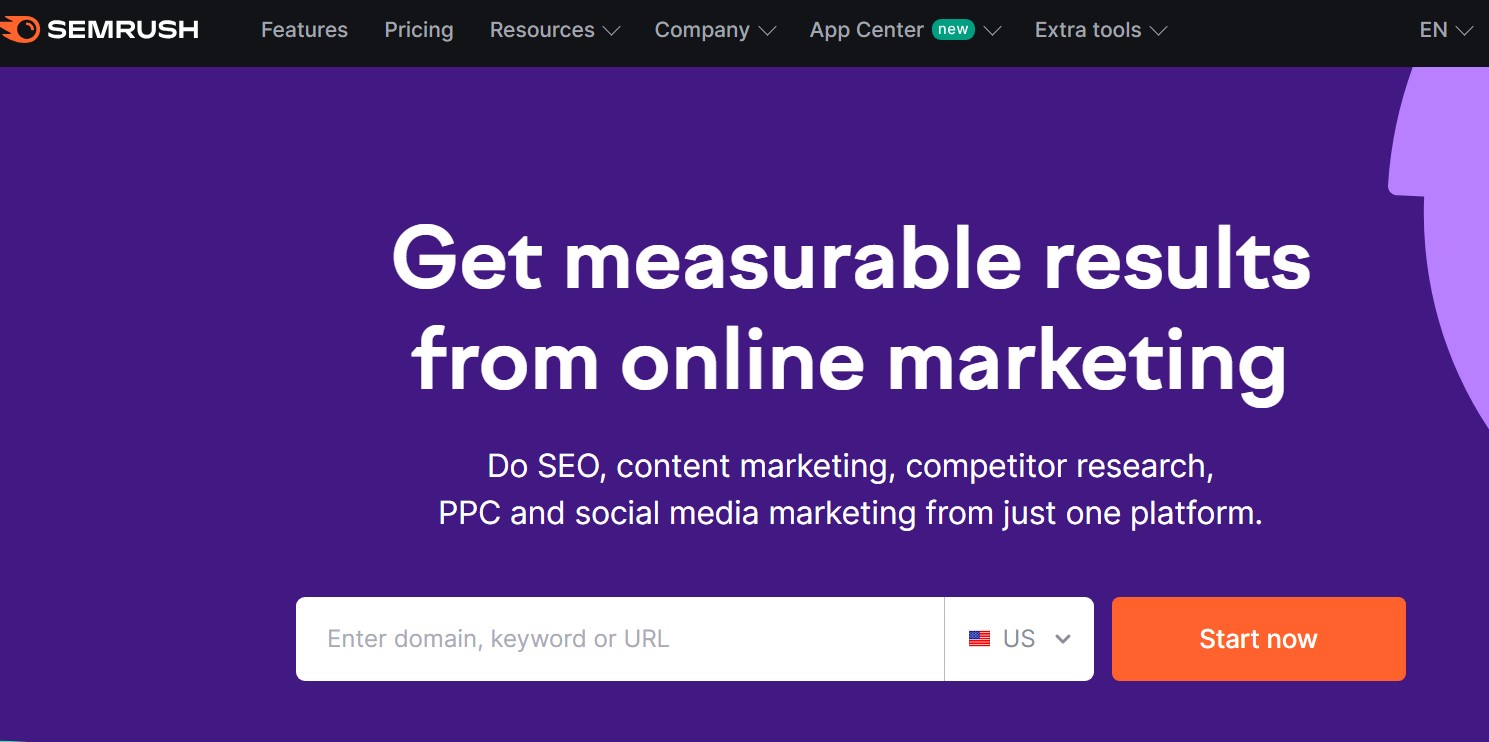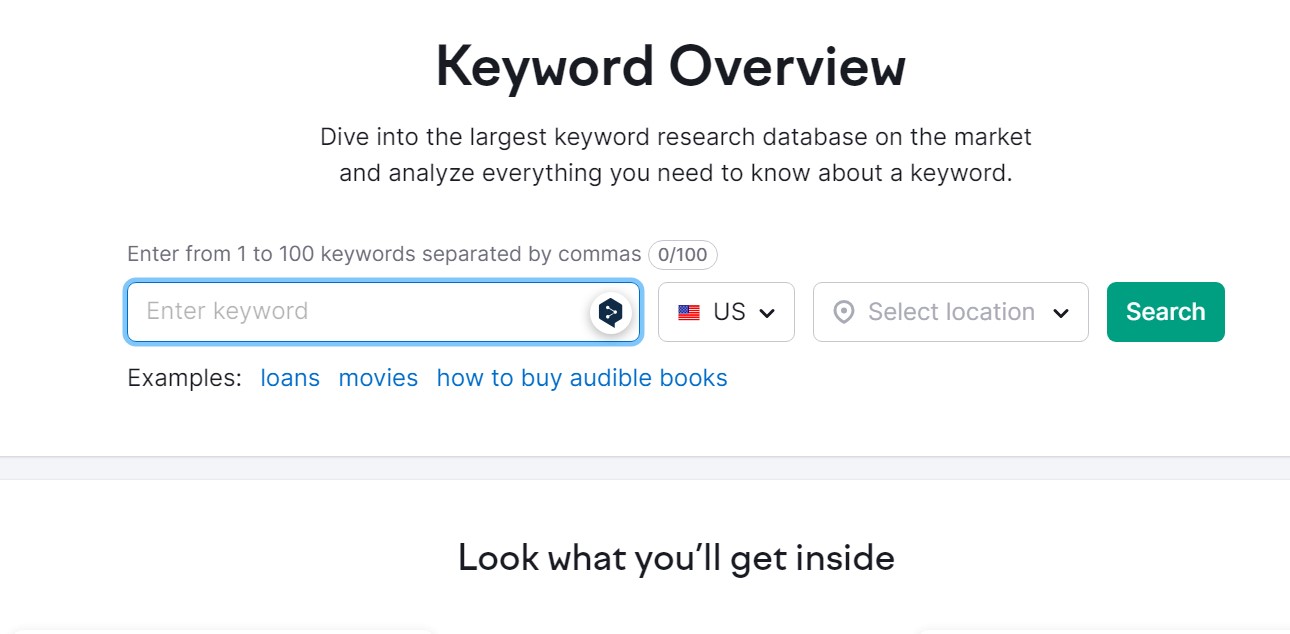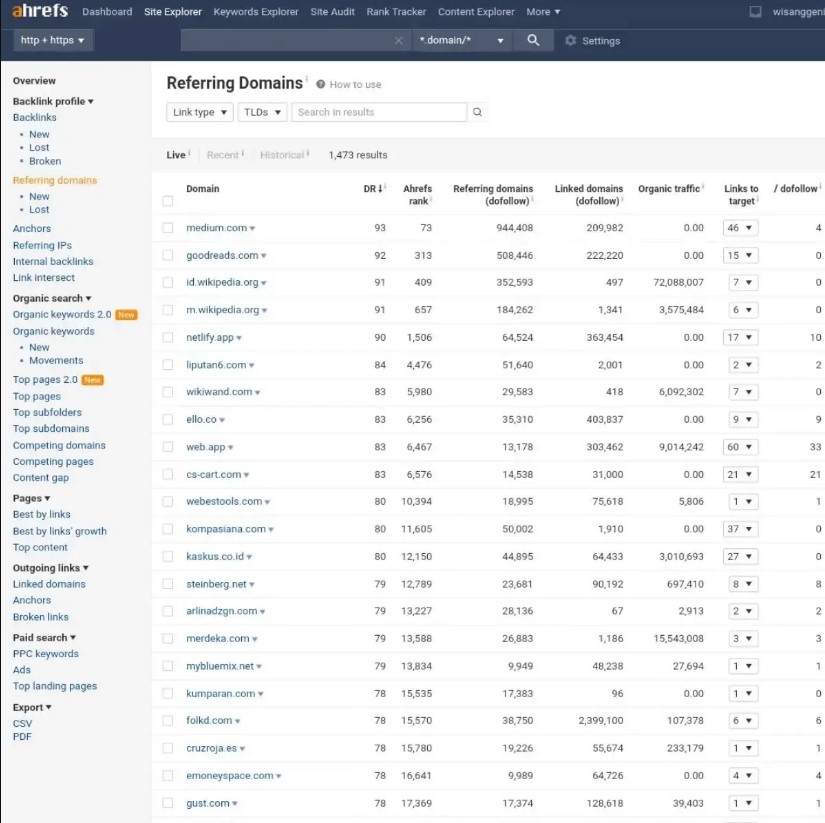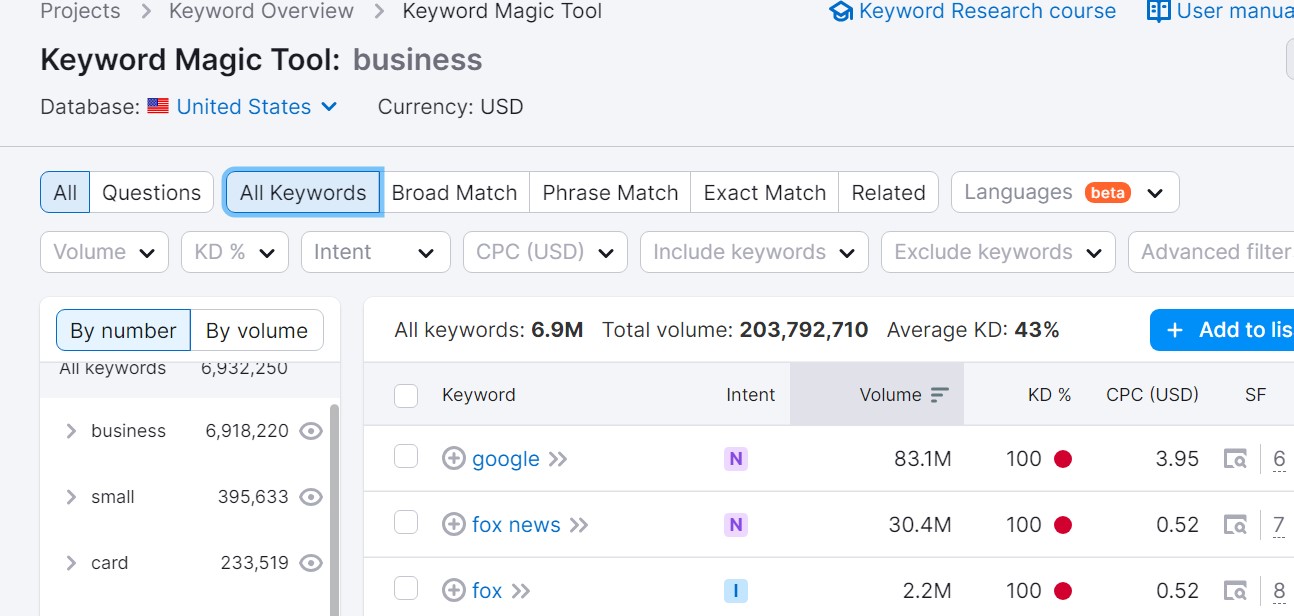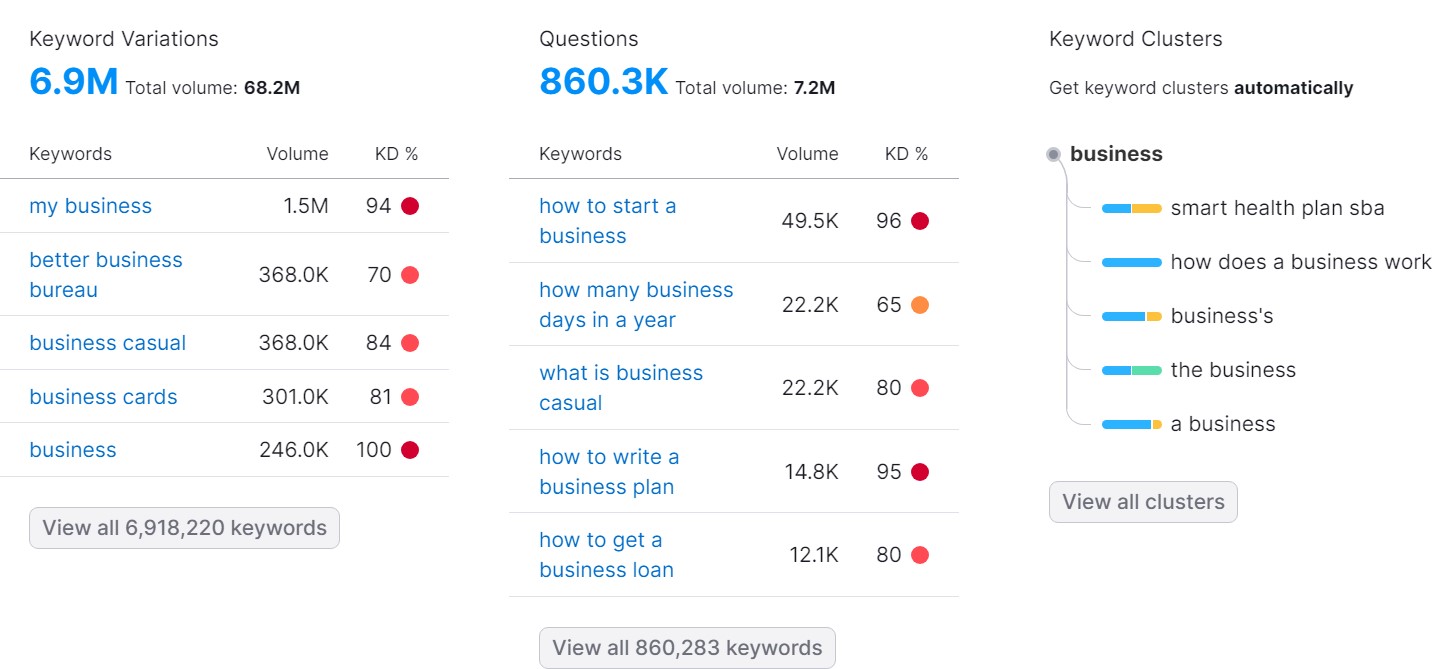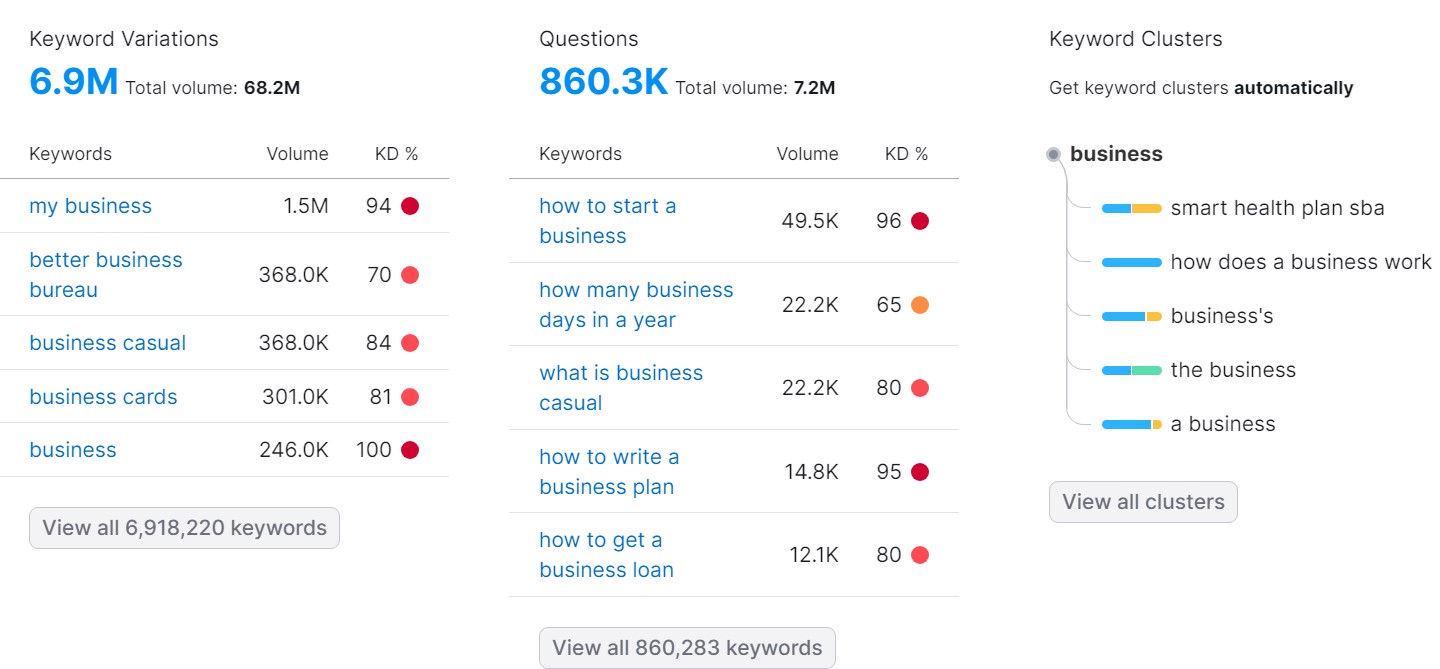Keywords are a crucial part of the SEO blogging process to bring in visitors. How do I experience doing keyword research? There are 10 tips you can use and also 8 free SEO tools for research SEO keywords
Interestingly, unlike online businesses, monetization through content creation is relatively the easiest. Blogging can be done by anyone according to their own interests and enjoyment.
Related Article:
- What is Business Analyst and its Important Role With IT jobs
- 8 Top Skills for Business AnalystDefinition of Manufacturing, Types and Examples
- How to Analyze Competitor Website SEO
Why SEO is necessary?

Blogging is about traffic. Yes, if no one reads your blog, what’s the point. Like a newspaper without readers, it will eventually close down.
Without traffic, blogging is almost impossible to monetize. Who wants to advertise when no one reads the newspaper?
Organic Visitors
How to bring traffic to your blog? The easiest way to advertise, paid-traffic. You can advertise on Google, social media like Facebook, Instagram.
Using ads is indeed the fastest way to bring in visitors. But how long will it take. It costs a lot of money to use advertising to attract visitors.
For blogging, advertising is not a wise choice and will not be sustainable. The main source of income for blogging is advertising on blogs, for example with Google Adsense. Income is earned if visitors click on the ads on the blog.
If you bring in visitors by means of paid-traffic advertising, you will definitely not make a profit. The cost of paid traffic is higher than the income from ads placed on the blog.
Therefore, it is necessary to source organic visitors for blogging. Visitors that don’t come from ads.
Organic visitors can be said to be free. There is no need to pay for advertising. Search engines are a source of organic traffic.
Almost 70% of internet traffic comes through search engines. People check first on search engines, then browse the internet.
Search engines are the main source of attracting traffic. Not only because they are big, but also because they are cheap (free).
The question is, how does a blog show up in search engines? SEO – Search Engine Optimization.
What is SEO?
SEO is a site optimization technique with the aim that content can get on the first page and rank first in the Google search engine.
For example, you have an online site selling cat food in New York. The content is about cat food.
When people search on Google with the keyword ‘cat food in New York’ then your site will appear in the first rank. If the website gets the top ranking, the website traffic increases.
In addition, you can also get traffic that matches the desired target market. So not only high traffic, but also targeting the right visitors according to your business goals.
In order to rank on search engines, sites need to follow the rules of the search engine (Google). In this case, SEO helps the site to follow Google’s rules in such a way that
There are actually many search engines in the world, but since Google is the biggest, SEO is aimed at page optimization on Google.
Benefits of SEO
Interestingly, the benefits of SEO are not just about bringing in visitors.
1. Traffic
Obviously, first and foremost, SEO brings in visitors. Traffic!
But, one thing that sets it apart from other ways of bringing in traffic in digital marketing is that SEO increases the organic traffic of the website.
Nowadays, people can get information about anything through Google Search.
According to a survey from Infront Webworks, 91.5 percent of traffic comes from ranking on the first page of Google.
If an online business website does not appear in Google search results, it means losing business opportunities to be found by many people.
With SEO optimization, websites can appear on Google and be reached by more customers.
2. Cheaper
I realize that ads bring traffic instantly, fast. But, it’s expensive. SEO is cheaper. Visitors come organically, from search results, not because of ads.
Because the marketing budget for this blog is limited, even very minimal, SEO optimization is an option. Because, I can do it myself by learning SEO techniques and practicing them.
If you get a good position in the search engine, the website will still appear when visitors type in keywords. So, I only have to spend one effort through SEO to get potential customers.
3. Brand Awareness
If I want to buy something, I always check first on Google. Whether the reviews are good or not.
And I trust organic results more than advertising. Many people have the same behavior.
Based on the survey, 88 percent of consumers do online research first before making a purchase.
When people search for your brand on Google, of course you want to come out on top. First page and first order.
Imagine if people search for your brand but the one that appears in the first Google ranking is a competitor’s brand.
You not only lose potential customers but also credibility online.
This situation requires businesses to have good brand awareness online. So that the business can always be found online.
The more often your website appears on Google, the more people know about your website. Moreover, almost everyone does online research through Google.
4. Qualified Visitors
The number of visitors to the blog, will be useless, redundant, if not quality visitors. Not visitors who convert, who generate sales.
Well, SEO brings in quality visitors. Why?
People who use search engines are looking for something, whether it’s information or products. In other words, their user’s intent is clear, they know what they are looking for.
When visitors type in certain keywords on Google Search, it means they really need information related to those keywords.
Unlike visitors from Facebook or Social Media, who are just spending their free time.
As a result, visitors from social media will be more difficult to convert into sales. It’s not impossible, it’s just harder.
If your website appears on the first page of Google, the possibility of users clicking on the website will be greater. Moreover, your business is relevant to the keywords that visitors are looking for.
Visitors who click on the website based on these keywords are visitors who are likely to fit the target market.
This is in accordance with the data, that organic traffic is 10 times easier to convert than traffic from social media.
The more a website brings in quality visitors, who fit the target market, the higher the potential for sales to increase.
5.Stable Traffic
If the website’s position on the first page of Google can be maintained, visitors will come more steadily.
Comparatively, if you use ads, visitors will fluctuate more because they are highly dependent on advertising. If there are no ads, visitors will disappear and vice versa, while advertising is not cheap.
If a blog is able to rank well in search engines, visitors from search engines will come continuously without having to actively promote.
In addition, by landing on the first page of the search engine, your business has the opportunity to get new visitors every month.
At first, many internet users don’t know your business. Then, from Google they find out about your business.
6. Fend off Negative SEO
I often see that brands are searched on Google, with negative keywords, for example, “is the brand a fraudster or has it been involved in fraud or not”.
Indeed, in search engines, people are not only looking for positive news, but also negative news.
There is something called negative SEO. Brand news appears on search engine pages negatively.
And that’s not good. Remember, people tend to believe the news in Google’s organic results. Counteracting it must be by doing SEO.
With SEO optimization, negative news will shift to a lower position. It will be replaced by positive news whose narrative you can control.
Of course, it’s impossible to remove negative news in search results. But with the position shifted from the home page, there will be far fewer people reading.
7. Updated Website
One of the SEO optimizations is to create relevant and up to date content. Content is a factor that is always emphasized by Google as a determinant in determining whether or not to rank on the first page.
The more up to date your website is, the more users will visit your website. Google will also increase your website ranking.
With a website that is constantly updated, competitors also find it difficult to compete with you.
8. User Experience
SEO will also provide a better experience for website visitors.
Because one of the components of SEO optimization is creating a user friendly website. For example, creating a responsive website for mobile users, optimizing website loading speed, and so on.
This means that if you optimize your website’s SEO, you have created a website that is user friendly for visitors.
What are Keywords?

When going on vacation, you search for information and write in Google search “cheap hotels in America”. The words “cheap hotels in America” are keywords.
Why are keywords important?
To answer that, I need to go back briefly to how search engines work. Remember, our goal is to attract visitors from search engines.
How Search Engines Work
The details of how search engines work are very complex, but the simple step by step is as follows:
1. Crawling
The search engine will crawl all the sites in the world. Crawling is done regularly by Google Bot.
Make sure your site can be crawled by Google Bot. Because, if it cannot be crawled, by itself the site will not appear on the Google search page.
2. Indexing
The results of the crawling are stored in the index. The process is called indexing.
Make sure that the pages of your site are indexed by Google. In one of the tools provided by Google, GSC, you can see which pages are indexed and which are not indexed.
3. Query
Users will search by writing keywords or keywords that are searched in the search engine. Keywords become the basis for search engines to do their job of issuing search results.
That’s why keywords are so crucial in search engine activities.
4. Search Algoritma
From the keywords received, the search engine performs a search process in the index using algorithms to attempt to provide the best search results for the keywords submitted.
This algorithm is the secret sauce that we don’t know. SEO tries to do optimization to fit the algorithm.
5. Search Results
Search results appear on the Google page. The search results that will be seen are the first page. Up to 70 to 80% of people only look at the first page.
Importance of Keywords
From the above working process, you can see that querying with keywords into search engines is a very important process.
There is no way a search engine can work if there are no keywords typed by users.
Search-based queries are different from, for example, printed newspapers.
In the newspaper, I read the news provided by the editor of the newspaper. What the editor writes in the headlines, that’s what I read.
In a search engine, the user decides what to read. Therefore, it is important to understand what the user’s preferences are as expressed in the keywords written.
Goals of Keyword Research
The purpose of keyword research is as follows:
- Write on topics that are searchable. It’s a waste to write something that people don’t search for in search engines.
- Measuring competition in search engines. From keywords, we can see the level of competition between sites for targeted keywords.
- Look for keywords that can bring in sales. It’s useless to have a lot of visitors but it’s hard to convert into sales. You need to choose keywords that are easy to convert.
Keyword Research Tips

From the experience of running SEO for almost 10 years, I learned and observed that the way of choosing keywords evolves and changes along with the rapid changes in SEO.
Some things that I think are important in SEO keyword research are as follows:
1. Search Quantity
There is no point in writing keywords that no one is looking for. That was the first hard lesson I experienced when I first started blogging.
I once wrote content with the keyword ‘unsecured credit’ because I thought this was the right way to write.
After running, there were few visits to the article, even though I had written the content comprehensively and better than the competitor’s website.
After checking, I found that people wrote, not ‘Unsecured Credit’. searches are much more numerous.
Moral of the story, the number of searches is the first thing you should check when determining keywords in content.
2. Search Intent
One thing that must be considered when thinking about keywords in writing content is search intent. What users are actually looking for when typing keywords into a search engine.
You must be able to translate keywords into content that is in accordance with the wishes of users who search on search engines.
For example, when writing the keyword ‘online loans’, what are people really looking for. There are several possibilities, including:
- Finding out what is and the definition of an online loan
- How are online loans regulated
- Where to apply for online loans etc.
There are many possible desires of users when writing keywords on Google. You must create content that best suits the user’s wishes.
How do you do it?
1. Your understanding
You already know your target market. So you already know what they mean when they write those keywords.
You build this understanding from experience and observation of your target and market segments.
For example, in the case of the keyword ‘online loans’, you know that what people are looking for is a list of apps where people can apply for online loans.
You wrote the article title ‘List of 10 best online loan apps’.
2. Google Check
Since the goal is to rank on Google, the main reference is to look at the ranking results. What kind of content is ranked by Google for that keyword.
The ranking results show Google’s understanding of the search-intent of searches with these keywords.
Although you may not agree with Google ranking, if you want your blog page to rank, you must follow the content that appears on Google.
3. Understand Your Target and Customer
Marketing teaches that customer segmentation and targeting are very important. Understand the behavior of targeted consumers.
You can see in the previous point, search intent, that understanding the target market is very important in order to know what the target wants when writing keywords.
For example, the language of the millennials must be different from writing for seniors. The terms are different.
Meanwhile, if you are writing something formal, such as finance, investment, you need more formal language than a review about traveling.
Start by collecting, brainstorming, about all the terms related to the business, industry, products and problems faced by the target market. Think of all the terms they commonly use.
Then, write down all the keywords from the brainstorming results, and build content planning from these keywords.
For example, if I want to write a topic about SEO, I will think of the following keywords:
- SEO On Page
- Riset Keyword
- Backlink dan Off Page
- SEO Tools dsb
I use the help of Tools to further develop the keywords from the brainstorming results. But, don’t enter Tools first, before you do the brainstorming.
In my experience, brainstorming is very important to hone your understanding of the target market. It forces you to understand your target better.
After you’ve made your glossary, plan out the relationship between one topic and another. After that, put it into a writing plan.
4. Forum, Group
I join forums and groups in areas that interest me and are related to my blog. The forums are usually on Facebook, Telegram and WhatsApps group.
Indeed, following forums and groups requires a lot of effort. If I want it to be effective, I have to take the time to read the content and participate in the discussion.
But, I think it’s worth it.
Some reasons why joining forums and groups is important:
- Keep track of current issues in the industry. What is going on, how new issues are emerging, is usually discussed in forums. You’ll be able to stay up-to-date quickly.
- Writing inspiration or keywords. I got to know the types of keywords that are often used when people search for a problem.
- Avoiding unpopular keywords. I planned to write with a certain keyword that I thought was popular, but I found out from the forum that it was rarely used.
Of course, you have to make sure which forums are good to join and which are not. It is worth taking the time to follow and read the contents of the discussion forum.
5. Keyword Derivatives
One way to build keywords is through derived keywords. This is the source of keywords that can bring traffic and are favored by Google.
For example, if I write about ‘keyword research’, then I can also write about it:
- SEO Tools for Keyword research
- Other factors besides keywords in SEO
Importantly, it may very well be the derived keywords that bring in more traffic because they are more searched for.
There are several sources for finding derived keywords, namely:
6. SEO Tools
Some SEO tools provide a special section about keywords. You can write a keyword and the related keyword will appear.
I have utilized a tool called SEMRush Keyword Magic, which allows the user to enter a primary keyword and retrieve a comprehensive list of related keywords along with their search volume and level of difficulty.
7. Related Search at Google
If you search on Google, at the very bottom of the search results, you can see other search keywords.
These keywords are words that Google thinks are related to the keywords written in the search engine.
8. Take a peek at the competition
Competitors are my source of inspiration, especially big website competitors. They provide a lot of ideas for content writing.
Keywords from competitors can be a source of keyword selection.
The problem is, how can you know the keywords used by competitors?
You should use SEO tools that provide complete competitor information, including the top pages and keywords of each competitor.
9. Level of Competition
My mistake, when I first started writing, was only looking at the number of keyword searches. I never paid attention to the competition.
As a result, the popular keywords I write about rarely appear on the first page of the search because the competition is so fierce.
At that time, I wondered why a lot of my content couldn’t rank, while I had written as well as I could.
After checking here and there, I found that the level of competition for the keywords I wrote was very tight. It contains sites that have a stronger position than my blog.
After knowing that, I was more careful in choosing keywords. I chose keywords with medium competition, so I could still beat them, while continuing to build my blog’s authority.
If you have better blog authority, you can target keywords with high competition. But if you’ve just started blogging, my advice is to look for a medium level of keyword competition.
To find out the level of keyword competition, you must use SEO Tools. I see that the good ones are paid SEO Tools for keyword competition analysis.
10. CPC, If Advertise
If you rely on advertising, such as Google Adsense, to bring in revenue, you must pay attention to the CPC of the keyword.
CPC is the ‘price’ of the advertisement placed. The higher the better
If you want to generate large ad revenue, you must look for keywords with high CPC values.
Of course, you have to pay attention to whether the high CPC keywords are niche topics that match the blog theme.
11. Branded Keyword
I learned that it’s impossible to rank on branded keywords.
For example, if I write about KlikBCA, then Google for this keyword will always rank BCA first.
Likewise, writing about GoJek, what appears in the first ranking must be the official Gojek website.
This is called branded keywords. Keywords from certain brands will always appear in the #1 ranking.
Why do I need to say this about branded keywords?
I once saw a high search business with a high CPC, so I wrote the content.
However, the traffic results were far from expectations. Because of the reasons I mentioned earlier.
From there, I learned that branded keywords will bring little traffic because the majority of traffic will be sucked up by the main brand which will always rank #1.
So for those of you who are interested in writing branded keywords, keep in mind that the incoming traffic will be less less lower.
12. Long-Tail Keyword
In the past, I thought that a lot of traffic would be brought in by head term keywords.
For example, the keywords “credit”, “investment”, which have a large number of searches because they are the main keywords.
However, after looking at the data, for example from Google Search Console or SEMRush, I know that the source of traffic is not from the main keyword.
My main source of traffic is from long tail keywords.
The Long Tail Keyword is, for example, “how to apply for credit online at the bank”, so the long version of the keyword “credit”.
Why does it bring me so much traffic?
- Competition in longtail keywords is light, far below the main keywords, so it is easier to rank.
- There are many variations of long tail keyword searches. People need more specific information.
From this experience, I learned that writing content with longtail keywords is very, very important in keyword research.
13. Content Planning
At first, I wrote according to my mood, what I wanted to write, I wrote. Indeed, this method feels relaxed.
However, if you’re going to take your blog more seriously and want to bring in more visitors, you’ll need content planning.
Content planning as the name implies is the plan of the content to be written.
Why is it important?
- Make blog content more comprehensive and have depth of content
- Build internal links between content in a planned and effective manner, which is one of the important factors in Google’s eyes.
- Avoid Keyword Cannibalization, which makes the ranking go down and not optimal.
12. Keyword Cannibalization
Of all the content articles I’ve written, there are many that don’t bring traffic at all or have very few visitors. In fact, if I check the content is good and the content is also quite in-depth.
After looking into it, I found the reason, which is: ‘Keyword Cannibalization’. Some of my writings have the same keywords.
As a result, there is ‘confusion’ from Google, which one to rank between articles with the same keywords.
To avoid keyword cannibalization, you can do the following:
- Have Content Planning. Plan your writing based on keywords that have been mapped.
- Update existing articles with new keywords that are related. Do not easily create a new article, if the same topic has already been written. It’s better to update old articles.
Keyword Research Free Tool
I have experienced that if you want a more effective SEO strategy, more qualified keyword research, then SEO Tools are mandatory.
The obstacles I face when I just write something I like and without the help of Tools, are”
- Many of the keywords I write about are not popular in search. No one is searching for those keywords, as a result few are reading.
- Running out of ideas to write. I’ve been running out of ideas to write for a long time.
- Didn’t know there was competition. I didn’t realize that every keyword has competition. Writing keywords that are controlled by large websites, is the same as ‘suicide’, the site will sink on the back page.
Expensive? No worries.
The good thing about SEO tools is that many are available for free.
Free of charge, just register your site and enjoy the service.
Of course, you’ll need to learn about them in order to reap the optimal benefits.
In this section, I want to introduce what SEO Tools are available. The level is just an introduction.
A separate discussion is needed for each tool because there are many features and uses.
1. Google Search Console
The first tool that must be used and mastered, anyone who wants to succeed in SEO, is Google Search Console (GSC).
GSC is a tool created by Google, specifically for SEO. You can imagine how important this tool is, Google controls 70% to 80% of search engines.
Some important features in GSC are:
Indexing
In GSC, bloggers can find out if the pages on their site are indexed by Google. If not indexed, the page will never appear in the Google search engine.
Whether the page is indexed or not is checked through GSC.
If not yet indexed, GSC has a feature for bloggers to submit the page to be indexed by Google.
Ranking
GSC provides ranking information on Google in aggregate and for each page on the site. This information is important because ranking is related to traffic.
Rankings that go down usually cause traffic to go down. And vice versa.
If there is a downward trend in aggregate ranking, bloggers can detail in GSC about which pages have dropped in ranking. Analysis and improvements can be made to improve the ranking of the pages that have dropped.
Keyword
GSC provides information about keywords that bring traffic to the site. What are the keywords written in search engines that bring visitors to our site.
Bloggers can know the types of keywords that make people interested in visiting the website.
This keyword information can be further processed to develop other content.
Importantly, for each keyword, GSC will tell you the ranking position of the article. Keywords whose position is still far below, can be optimized to get a better ranking position.
There are many other features in GSC that support SEO analysis and development.
2. Google Trends
Google Trends is a free tool provided by Google to find out search trends in search engines.
For one, you can use Google Trends data to find inspiration for content writing. Know what people are looking for right now.
Not only about the things that are trending, the ‘evergreen’ search topics, which people are always looking for, you can also analyze through Google Trends.
3. Yoast
Yoast is a plugin in Wordpress (WP) that provides SEO analysis services. I have been using this plugin for a long time.
Not only because it’s free, but also because Yoast provides valuable information about a site’s SEO.
Yoast helps provide an evaluation of whether the post created has met the SEO rules regarding keywords. There are certain parts of the post that must have keywords.
Yoast helps to check and give a score. If the score is red, it means that many things about the article need to be fixed (and how to fix them). If it’s green, the article is considered to have met the SEO criteria.
4. Rank Math
I just heard about this plugin, Rank Math (RM). Among SEO friends, RM is considered one of Yoast’s competitors, as both SEO plugins on the WP platform.
I checked RM has many other features for SEO that are different from Yoast.
One of the features of RM is the integration with GSC. Register a site in GSC, then connect it with RM.
The result is that RM SEO plugin can analyze your site based on accurate information and data from GSC. One of them evaluates keyword placement in posts.
Keyword Research Pay Tool
Besides the free ones, there are also a number of paid SEO tools on the market.
Many things related to SEO cannot be fully served by free SEO tools. There are components in SEO analysis that need other tools.
Free SEO tools are not superior, they must be complemented with other tools.
5. SEMRush
SEMRush is a paid SEO tool that is powerful enough to do SEO more optimally.
I have used this Keyword Magic and found the keyword information to be readable and comprehensive. Very helpful when building content, especially because:
- Provides many ideas about keywords
- Shows the number of searches and CPC for each keyword
- Indicates the level of competition
How to Keyword Research in SEMRush
Waktu yang dibutuhkan: 3 menit.
How to use keyword magic in SEMRush and the information you can see below.
- SEMRush SEO Tools
SEMRush is a paid SEO tool.

- Keyword Overview
SEMRush provides Keyword Review.

- Backlinks
Monitor new and loose backlinks

- Keyword Magic
SEMRush’s Keyword Magic provides various keyword analysis.

- Keyword Analysis
Volume, Difficulty & CPC of each keyword.

- Related Keyword
Provide related KW’s and Questions.

6. Ahrefs
Ahrefs is one of the paid SEO tools that is no less cool than the tools above. I have been using Ahrefs for quite some time.
Notable features in Ahrefs include:
Domains and Backlinks
Ahrefs is well known for its ability to provide data about backlinks. Ahrefs backlinks database, one of the largest in the world.
Backlinks analysis from Ahrefs can show:
- The quality of these backlinks is based on the DA/PA indicator.
- Daily updates on the number of backlinks. Which ones are new, which links are lost.
- Backlinks from competitors. What are the links that competitors build.
Competitors
Ahrefs provides comprehensive analytics for each site. This info can be used to analyze your competitors.
In fact, Ahrefs provides recommendations for sites that are competitors. Can be compared from various aspects with competitors.
Site Audit
This part I never miss, doing a site audit on Ahrefs.
Ahrefs has a great site audit. The audit results are ranked in order of highest priority with suggestions on how to resolve them.
7. Ubersuggest
Ubersuggest came later after SEMRush and Ahrefs. It was originally known as a site that provides free keyword analysis.
However, Ubersuggest is now paid and provides many other SEO analyzers.
One of the flagship features in Ubersuggest is keyword research, which provides a wide variety of derived keywords based on the inputted keywords.
Keyword results from Ubersuggest provide question information:
- Total search volume per month.
- CPC value. Important for bloggers who monetize from ads.
- The difficulty and competition level of the keyword.
8. Moz.com
Moz is a well-known SEO consulting company. Their website is Moz.com
One of the most recognized from Moz is the DA/PA indicator. Which until now is still believed to affect the ranking of a site.
Moz provides paid applications to analyze various aspects of SEO. One of my favorites is the on-page SEO and keyword analysis.
- Get 10 keywords per month with a free account or upgrade to the paid version to get even more keywords.
- Checking whether On-Page SEO has been done correctly and according to industry standard rules. The results of the check will be given recommendations for improvement.
On-Page is one of the crucial parts of SEO. So, the checking service from Moz will be very helpful.
I’ve been doing SEO for almost 10 years now. One thing that I still see as relevant and changing is the keyword research method. Keywords are a crucial part of SEO. It’s important to get it right.



